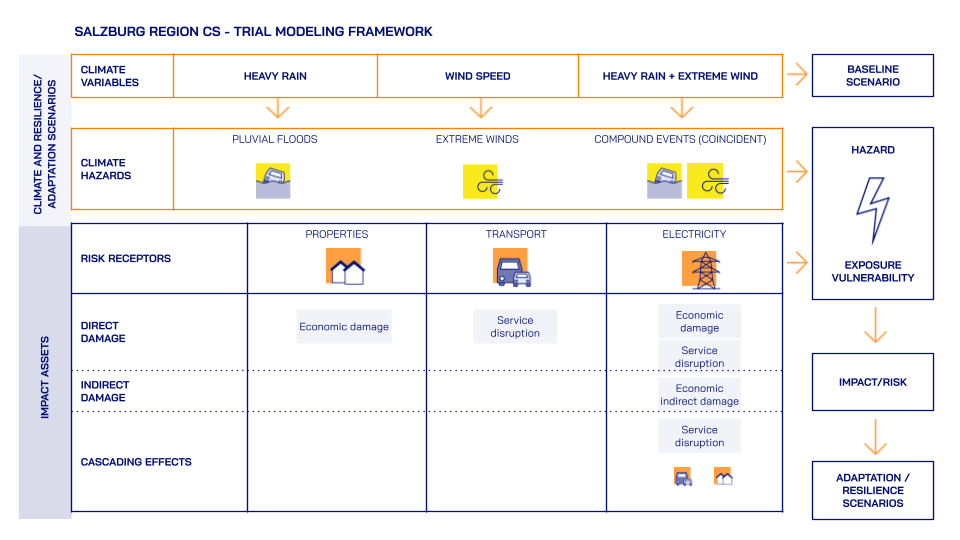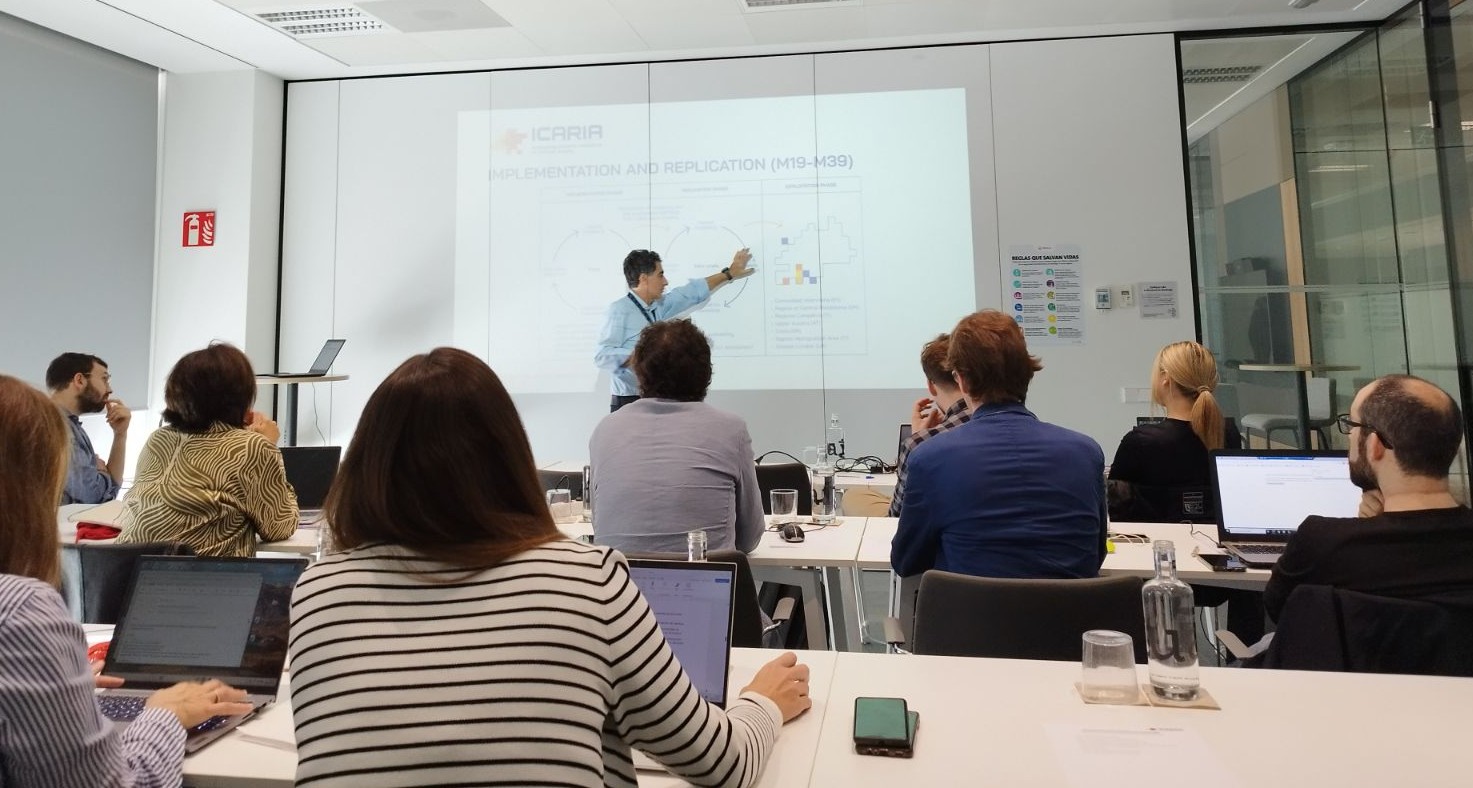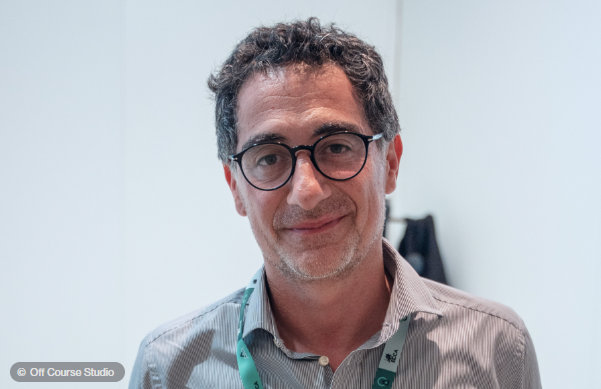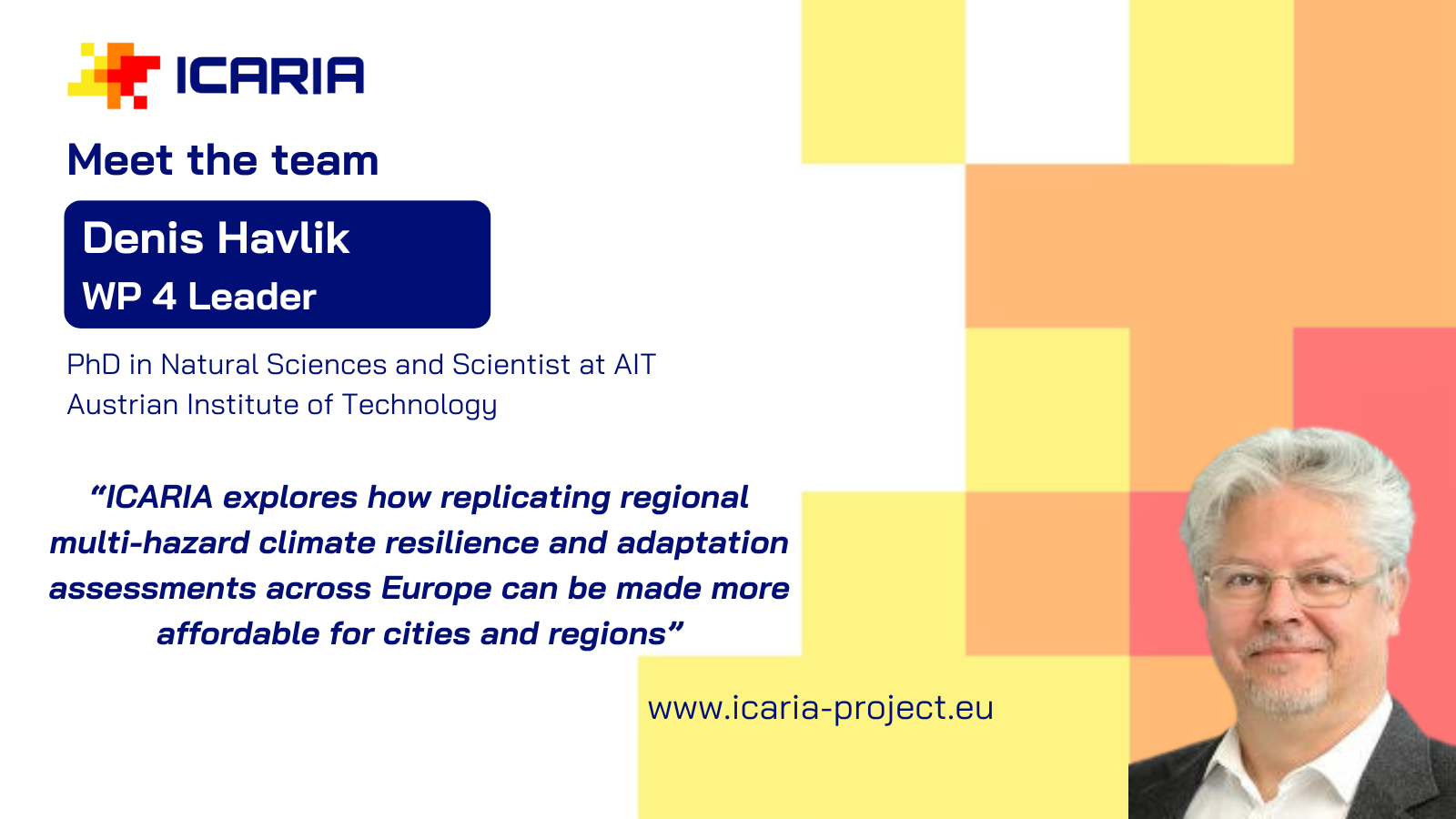
#5 | Compound climate hazards and energy challenges: Insights from Salzburg within the ICARIA project
By Marianne Bügelmayer-Blaschek (AIT)
Austria, a mountainous landlocked country in Central Europe, has experienced an almost 3°C increase in average air temperature since 1880, as stated byGeosphere Austria. The country’s mountainous regions are already affected by global warming, with severe implications for different sectors, such as energy production.
In Austria, most (renewable) energy is provided by hydropower. Austria’s climate and energy strategy, “#mission2030,” aims for a ratio of 46-50% renewable energy by 2030, and a carbon-free energy sector by 2050. However, challenges for hydro energy production due to climate change, along with the shift to solar and wind energy, could increase the risk of energy supply instabilities and blackouts.
In Salzburg, a mountainous area in Austria, one of the most severe weather extremes associated with climate change is heavy rainfall, which increasingly leads to pluvial and fluvial flooding. The impacts of these events are manifold, for instance the aforementioned hydro energy production decreases and roads are blocked.
The Pinzgau region around Mittersill is particularly affected by these events, which adversely impact critical local infrastructure such as the hospital (2005) and the local train network (2021, 2023). Driven by global warming, the intensity of these extreme precipitation events is steadily increasing, requiring local solutions and adaptation to mitigate the severe consequences.
Compound and cascading events in Salzburg
Within the ICARIA project, there is a strong focus on so-called compound and cascading events. In Salzburg these specifically concern storms and precipitation. The first one can, for example, lead to falling trees that might significantly disrupt local infrastructure.
By considering cascading events, we incorporate the increase in the region’s vulnerability after one extreme event. One example is an occurring storm that relates to fallen trees that block roads, affect energy systems and – in severe cases – might even destabilize slopes if many trees are disrooted. In addition, fallen trees can even increase the intensity of floods as they can block streams (“Verklausungen”).
The Salzburg Community of Practice: a useful tool for tackling the effects of climate hazards through a multidisciplinary approach
To ensure that the complexity of the problem (what events at what intensity impact the region, how long is the region impacted, etc), regular meetings of the stakeholder group CoP (Community of Practice) take place twice a year within ICARIA. This group includes representatives from science, industry and administration, such as the Mittersill District Council, the Austrian economic chamber, Pinzgauer Lokalbahnen, Wildbach und Lawinenverbauung, the adaptation of the Federal State of Salzburg and VERBUND, one of the project’s partners.
The main objectives of the CoP meetings are twofold: firstly, the participating scientists present new research results from the project, such asclimate projections or developed adaptation solutions to the local stakeholders; secondly, they ensure through discussion and exchange that the results of ICARIA are useful and usable for the local authorities and various stakeholders.
Through the CoP members, the critical intensities for rainfall and storm events were defined, and the developed tools will be evaluated. The final event will take place in March 2026, in which the final project results will be shared and potential future work will be discussed.

Figure 1. Impact of heavy rain and wind storms on properties, transport and electricity, as well as their compound effects on the aforementioned assets. Source: ICARIA project.
More news

The ICARIA project tests pioneering tools to address the impacts of extreme climate phenomena
Climate change is increasing the frequency, duration, and severity of extreme weather events. These phenomena have significant social and economic... View Article

New interview about ICARIA by Beniamino Russo
Project Coordinator and Professor of Hydraulics and Hydrology at Universitat Politècnica de Catalunya – BarcelonaTech (UPC), Beniamino Russo, has interviewed... View Article

Meet the team: Denis Havlik
Denis Havlik is a Scientist at AIT Austrian Institute of Technology and the leader of Work Package 4-Case studies: implementation,... View Article

